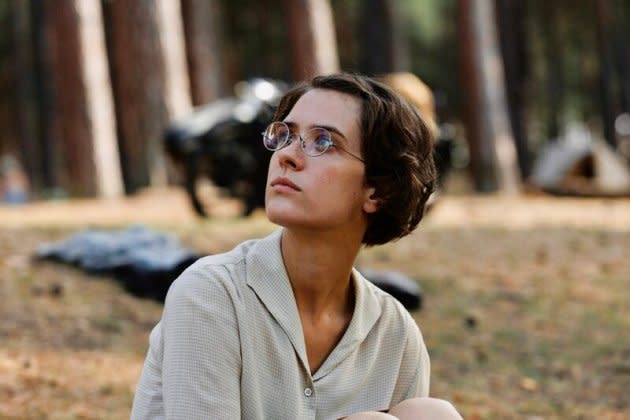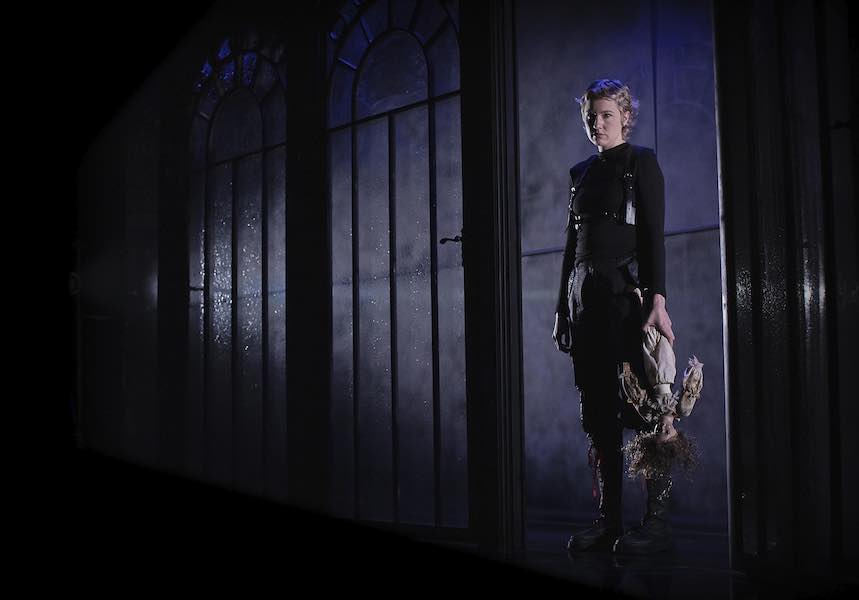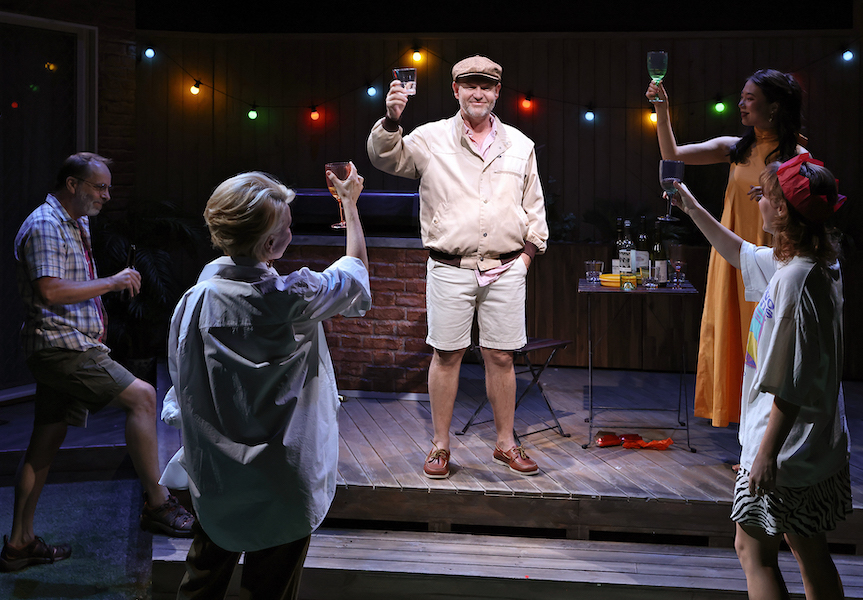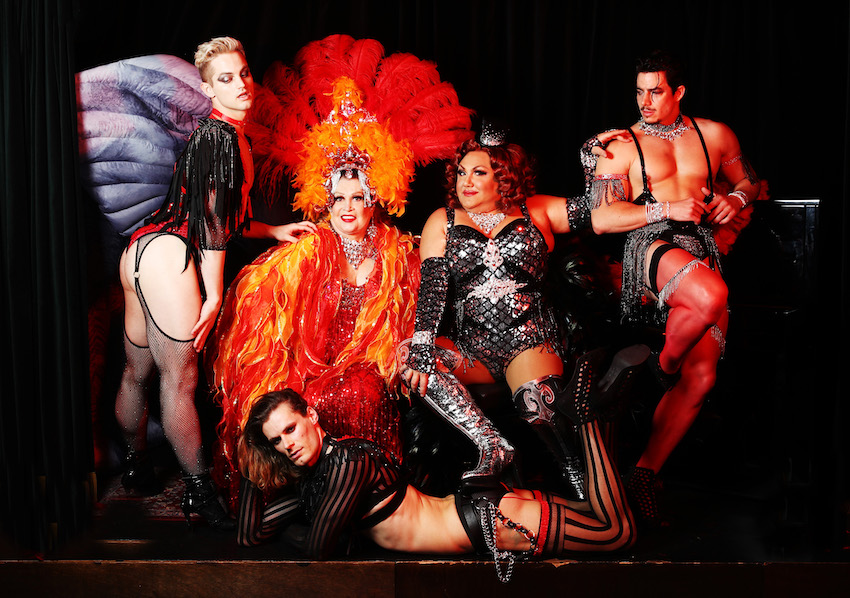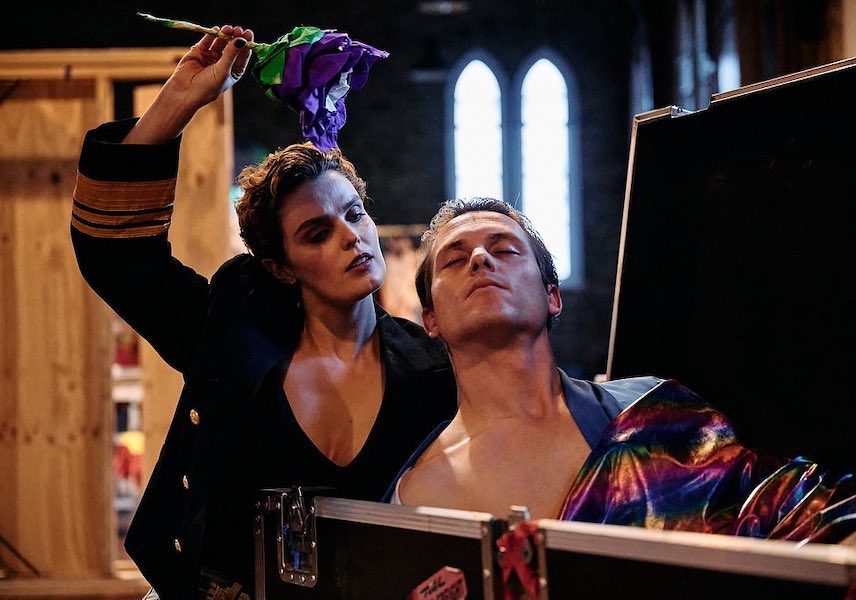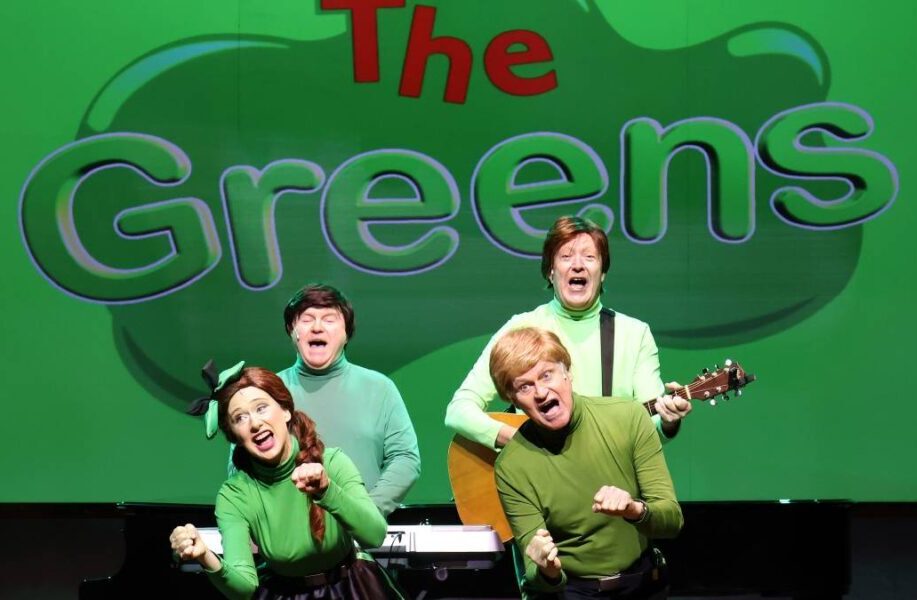
SPROUT
A play that not only paints the horrifying picture of an environmentally-ravaged Australia, but does so drawing on the life-giving force of poetry and via an ecologically-sound and holistic production … crazy, right? Or the way of the future? Playwright Jessica Bellamy tells us more …
How real do you think Sprout is? Sprout is a vision of an Australia of the future – this Australia is the product of my imagination, but not far from what I think could eventually be the case. My play presents an Australia plagued by depleting supplies of food and water, intense heat and wind, and lack of renewable energy. As a result, people live in small skeleton communities, or eke out a nomadic existence in the wild. All the things that we assume make us human – technology, communication, media – are gone. Yet people retain perspective and hope through the one remaining source of communication – the radio. The use of radios during wartimes throughout history, as a means of contact and comfort, has been an inspiration for this vision of the future. Perhaps it is only with all the tall buildings fallen down and communication stripped back and streamlined, that we will finally meet each others’ eye-lines and begin to communicate again.
Where did the spark of inspiration come from? For a long time I have been fascinated by the role of poetry in everyday life. Every piece of theatre I write is usually inspired by a poem of W.B. Yeats. In this case the opening lines of The Second Coming:
Turning and turning in the widening gyre
The falcon cannot hear the falconer;
Things fall apart; the centre cannot hold;
Mere anarchy is loosed upon the world,
I began to wonder what sort of role poetry would play in a world where everything is dry, barren and dusty. Maybe, rather than turning to anarchy, poetry could be a source of calmness, reflection and connection? Poetry to me represents a sort of lush, ornate, fertile life; the condensing of overwhelming emotion into a few very precise lines, lines onto which you can project your own experiences so that they hum and reverberate through time, place and culture. I thought a world based round poetry would be the perfect way of bringing solace and perspective to people who have nothing. As the character Emily says in my play, “Soft words, wet words, they’re for people with nothing. Dry ground needs words to grow.”
What motivates the ‘Weatherman’, the radio prophet who brings the stories together? The Weatherman is a disgruntled former politician who left the skeleton city in which he worked to start a new nomadic existence up in the hills. He was no longer offering the inspiration and hope he wanted to in the city, and instead adopted this new lifestyle as a sort of prophet. He lives in the hills, “greening us with memory” – offering canonical poems to inspire, excite, comfort and occasionally titillate!
Why did you want to make this an ‘eco’ production, and how did you go about doing it? Gin Savage (director) and I began to collaborate on this script early in 2011, and it was immediately clear to us that any play dealing with environmental issues should walk the walk, not just talk the talk! We were interested in making an empowering piece of theatre – not just in an artistic sense (which is very important), but also empowering our audience into wanting to make positive environmental decisions in their life as a result of seeing the play. A desire to help our world heal comes from a very simple premise – belonging. By recognising our connection to other people, animals, and the planet more widely, do we make responsible and invested decisions. Through the generous support of Paradice Investments, we have been able to implement a few eco aims. We have a set made from recycled materials, green stock printing for our publicity material and scripts, and re-usable USB programs for the show.
What is one thought you hope audience members will take away with them? The world keeps on ticking when it is driven by curiosity, hope and love.
Oct 26-Nov 19,The Old Fitzroy Theatre, cnr Cathedral & Dowling Sts, Woolloomooloo, $21-33, rocksurfers.org


